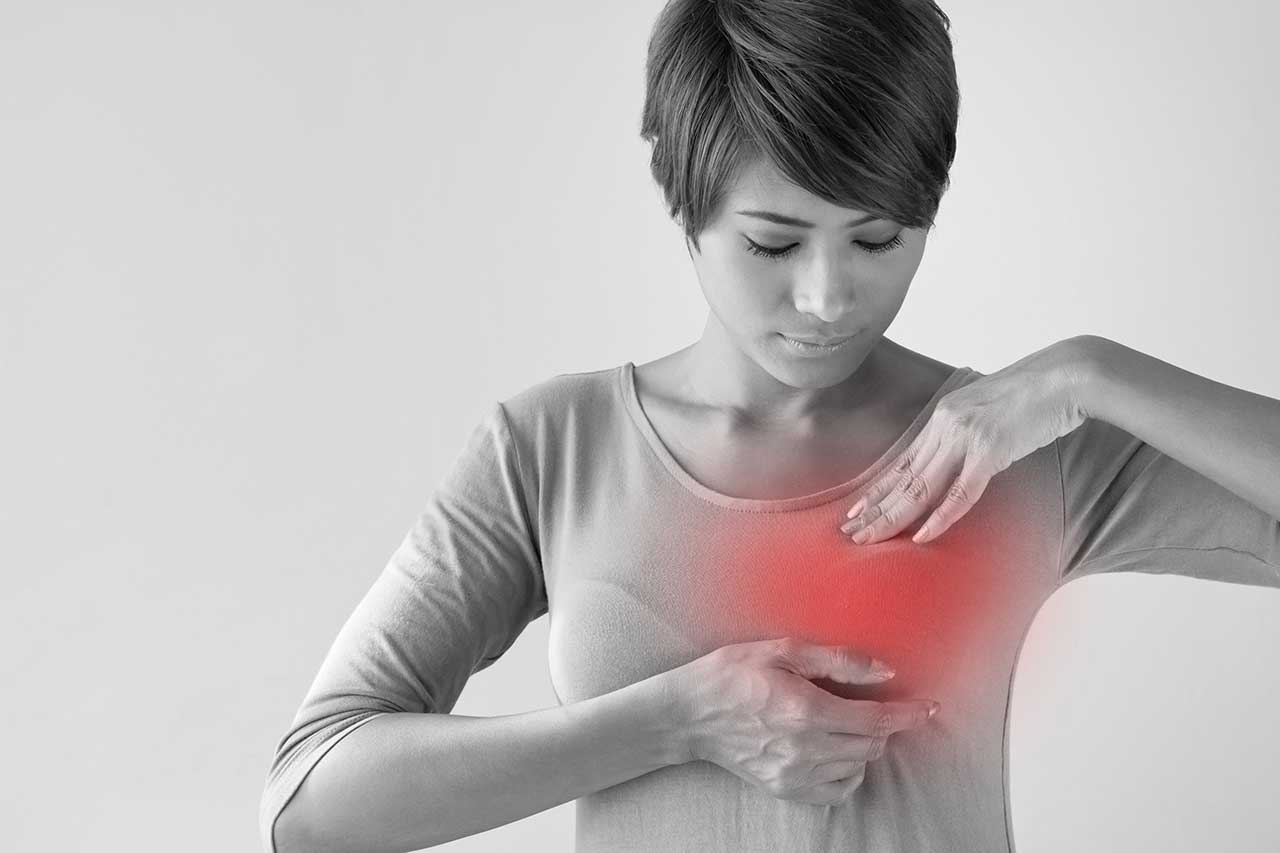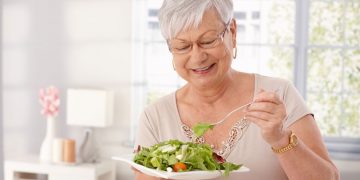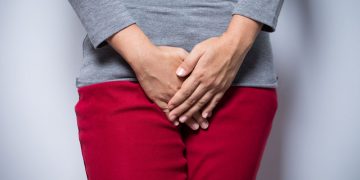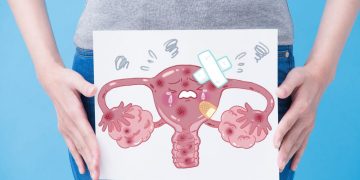One in 10 women will develop rest cancer in their lifetime, with UK cases increases by six percent over the last decade. But while Angelina’s intervention was motivated by her family’s medical history, oncologists reckon the Western diet is also a common culprit. Ready to reverse the modern trend towards a carcinogenic diet? Get swapping…
Full-fat milk to Skimmed milk
Much has been written about the risk that estrogen in dairy products poses to our health, with several commentators advising cutting it out entirely. Rubbish, says Dr.Michelle Harvie, a research dietician at Genesis Breast Cancer Prevention Centre at Wythenshawe Hospital in Manchester. “The argument against dairy, which is actually very UK-centric, is very emotive but the evidence just isn’t there. Yes, we get a lot more breast cancer here than in Asian cultures that don’t consume dairy but the difference is easily explained by other factors. We do absorb estrogen from dairy but the effect on the hormone levels in our blood is absolutely minimal. I wouldn’t advocate lots of high-fat dairies because it’d have implications for weight gain which is a very important factor, but low-fat dairy won’t cause breast cancer, won’t increase your hormone levels and can be helpful to maintain a healthy weight.”
Reduced-fat indulgence bar to Good quality dark chocolate
“The Nobel Prize winner Dr.Warburg summed it up when he said for the prime cause of cancer we have to look to the oxidization of sugar in the body,” says nutritionist Zoë Harcombe. “There are two problems with ‘low-fat’ chocolate bards. On one hand, they provide useless calories, witch none of the nutrients that we desperately need. On the other hand, they are high in sugar and contain things you don’t want: polydextrose, diglycerides and a long list of other processed ingredients.” And a good dark chocolate? “It’s brilliant. Interestingly, the raw cocoa powder is a fantastic source of minerals: copper, iron, magnesium, manganese, and zinc. Check the label; the best bars have only four ingredients, cocoa powder, cocoa butter, a bit of sugar and a tiny amount of emulsifier.
Canned tuna to Fresh Sardines
Research published earlier this year found a lifelong diet rich in omega 3 can inhibit the grown of tumors in the breast by 30 percent. A similar study found the fatty acids, which the human body cannot produce so much acquire from the diet, had the same effect on some oral and skin cancers. What’s more, a Chinese investigation published in the British Medical Journal found a diet rich in polyunsaturated fatty acids from fish was associated with a 14 percent reduction in risk of breast cancer. The cooked and canned tuna in your cupboard does contain healthy fish oils but, with levels often depleted by the tinning process, not to mention the risk of contamination from heavy metals, it’s worth trading up to a richer source.
Crouton to Flaxseeds
You are forgiven for wanting to add a little crunch to salads, but the empty calories of oil-soaked white bread are a poor substitute for nutrient-rich seeds. Teeny brown flax seeds are rich in anti-carcinogenic lignans, a type of phytoestrogens which German researchers have found to reduce the spread of estrogen-negative tumors in post-menopausal women. In fact, the study, published in Journal of Clinical Oncology, suggests that subjects with high levels of enterolactone – the substance the gut metabolizes from lignans – were 40 percent more likely to survive the disease than those with lowest levels.
A bowl of sweets to A handful of raisins
It is no surprise that confectionary is unhelpful for those hoping to dodge breast cancer. However, Dr. Hillary Wright, senior nutritionist at the Dana Faber Cancer Institute in Boston disputes the simple hypothesis that ‘sugar feeds cancer’. Instead, she blames excessive insulin caused by the glucose spikes of a sugar-rich diet. “Insulin resistance, which in its most advanced state causes type 2 diabetes, is believed to be a potential player in a number of cancers, including cancer of the breast, colon, pancreas, kidney, and endometrium. Because total carbohydrate intake at a meal or in the snack is what drives our pancreas to produce insulin, it makes sense to limit super-sweet snack to occasional use, and opt instead for more natural forms of carbohydrate like fruit to whole grain crackers, which aren’t as crammed with sugar.”
Glass of wine to Spritzer
“Across years of study, alcohol is the only food or drink that has consistently emerged as causing a problem,” says Dr.Michelle Harvie. “We know it increases estrogen levels, that’s not up for debate, so it’s important to regulate intake. I wouldn’t necessarily advise people not to drink at all – some alcohols protect against heart disease – but the optimum level is about 10 units a week.”
Potatoes to Beetroot
Freshly boiled with a sheen of butter, sandwiched in slices for a creamy dauphinoise… beetroot is the perfect alternative to starchy spuds! Even better, filling your plate with carotenoid-rich fruit and veg can reduce your risk of developing breast cancer, according to a study published in America’s Journal of the National Cancer Institute. Women with high carotenoid levels were also found to have slower-growing tumors, with the positive effects particularly significant in estrogen receptor-negative (ER-) breast cancers. Since carotenoids are organic pigments, your richest sources are fruit and veg colorful enough to stain your t-shirt: beetroot, blackberries, carrots, dark leafy greens, and squashes, for example. A rainbow diet indeed!
Fried pork to Braised tofu
Eating Chinese? Opt for tofu. While soy has been demonized in some quarters for inflaming hormone-sensitive tumors with its naturally-occurring phytoestrogens, Dr.Hillary Wright believes these gentle plant-based estrogen can actually act to block receptors. “The most recent research on soya and estrogen-positive breast cancer suggests breast cancer survivors may actually benefit from including whole soy foods, like tofu, soya milk, and edamame, in their diet.” Because eating large amounts of the gastrointestinal tract, and plant-based diets are considered protective, it makes sense to swap out some meat for tofu in a stir-fry, or sprinkle some edamame in your salad, as a way to incorporate some plant proteins into your meals.”
Lard to Rapeseed oil
Traditional pork fat makes the crispiest roast potatoes but a high-quality cold-pressed oil works just as well and delivers serious benefits. “Saturated and trans fats can promote insulin resistance and inflammation in the body, both of which may contribute to an environment where it’s easier for cancer cells to grow,” says Dr.Wright. “On the other hand, heart-healthy fats, like rapeseed or olive oil, avocado, nuts, seeds, and fish oil, may improve insulin sensitivity and suppress inflammation, making them much healthier choices. Of course, too much fat may contribute to weight gain, which may raise cancer risk, so moderation is key.”
Smoked bacon to Nitrate-free bacon
“In its guidelines for nutrition and cancer prevention, the World Cancer Research Fund recommends avoiding processed meats,” says Dr.Hillart Wright. “Nitrates in smoked and cured foods, like ham, bacon, sausages and hot dogs, convert to nitrosamines in the body, which are known carcinogens”. Another simple swap to protect your breasts!








